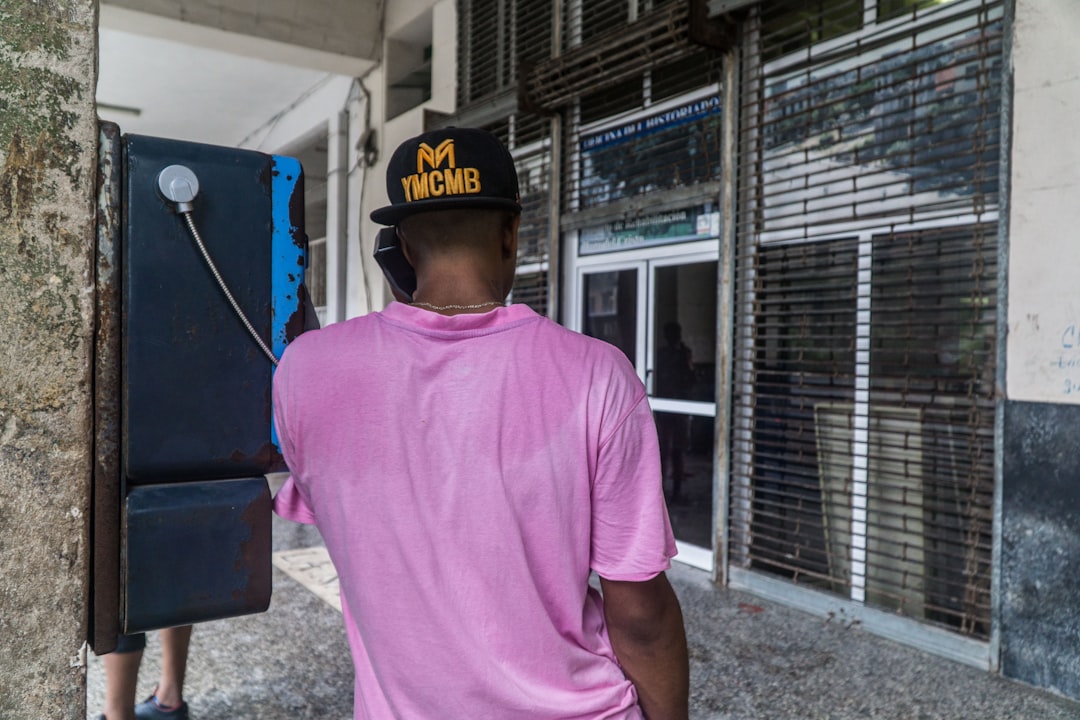In New York City, where communication is vital, the rise of autodialers and robocalls has become a pervasive issue. Understanding the city’s strict anti-spam laws is crucial to fighting this digital nuisance. This article guides you through navigating the legalities, reporting unwanted calls, and choosing the right lawyer for spam-related issues in NYC. Learn how to identify spam, prevent future robocalls, and understand common challenges. Contact a law firm or attorney specializing in robocall cases to protect your rights and peace of mind.
- Understanding New York City's Anti-Spam Laws and Regulations
- Identifying and Differentiating Legitimate Calls from Spam
- Steps to Report Robocalls and Unwanted Text Messages
- The Role of a Lawyer in Navigating Robocall Legalities
- Common Loopholes and Challenges in Stopping Autodialers
- Effective Strategies to Prevent Future Robocalls
- Choosing the Right Law Firm or Attorney for Spam-Related Issues
Understanding New York City's Anti-Spam Laws and Regulations
Identifying and Differentiating Legitimate Calls from Spam
Identifying and differentiating legitimate calls from spam is a crucial step in navigating the complex landscape of communication in New York City. With the rise of automated dialing systems, known as robocalls or autodialers, consumers often find themselves deluged with unwanted text messages promoting products, services, or even legal services. These spam texts can be hard to distinguish from genuine communications, especially as tech-savvy spammers employ sophisticated tactics to bypass filters and reach their targets.
Consumers should be wary of unexpected texts from unfamiliar numbers, promoting legal aid or specific law firms (robocall law firm NYC, robocall lawyers NYC). If a text message contains urgent or high-pressure language, requests immediate action, or offers questionable legal advice, it could be a spam attempt. Legitimate legal communications typically follow professional protocols and provide clear contact information for the attorney or firm (lawyer for robocall NYC). To combat these nuisance calls, New York City residents can utilize tools to block numbers, report spam texts to their service providers, and consult with attorneys specializing in robocall litigation (robocall law firms NYC) to explore legal options, such as suing the culprits under relevant laws, like those against telemarketing practices. By being vigilant and proactive, New Yorkers can protect themselves from these unwanted intrusions and ensure a quieter digital environment.
Steps to Report Robocalls and Unwanted Text Messages
If you’re receiving unwanted autodialed calls or text messages in New York City, there are steps you can take to help stop the nuisance and protect your rights. Start by identifying the source of the spam texts or robocalls. Note down the phone number, the time, date, and a brief description of the call’s content. This information will be crucial when filing a report.
Next, contact your service provider and inform them about the issue. They can offer guidance on blocking numbers and may have tools to help filter out such calls. For more comprehensive action, connect with a lawyer for robocall in NYC or a robocall law firm NYC specializing in telecommunications laws. You can also report these incidents to relevant authorities, such as the Federal Trade Commission (FTC), using their online complaint form. Additionally, engaging robocall attorneys NYC or robocall lawyers NYC can help ensure your rights are protected and may lead to legal repercussions for violators.
The Role of a Lawyer in Navigating Robocall Legalities
Common Loopholes and Challenges in Stopping Autodialers
Despite efforts to combat them, autodialers and robocalls present significant challenges due to loopholes in regulations. One primary issue is that while laws exist to restrict unsolicited phone marketing, including automated calls, enforcement can be difficult. These calls often originate from call centers located outside New York City or even the country, making it challenging to trace and prosecute perpetrators.
Additionally, autodialers evolve quickly, using sophisticated techniques to bypass detection systems. They may employ dynamic number generation, making it hard for filters to identify and block them effectively. Consumers can help by reporting spam texts to their service providers and law enforcement, but staying ahead of these tactics requires collaboration between legal experts and technology developers. Engaging the services of a lawyer specializing in robocall cases, such as those available in NYC, is crucial for navigating this complex landscape and ensuring compliance with local laws like the robocall law firm or attorney NYC regulations.
Effective Strategies to Prevent Future Robocalls
To effectively challenge and prevent future robocalls in New York City, individuals should consider implementing robust strategies that protect their privacy and conform to local regulations. One powerful tool is staying informed about state laws regarding telemarketing practices. New York has strict rules on how businesses can contact residents, including restrictions on automated calls without prior consent. Engaging the services of a robocall law firm NYC or hiring robocall lawyers NYC specializing in telecommunications law can provide guidance on navigating these regulations and pursuing legal action against persistent violators.
Additionally, reporting spam texts to relevant authorities is crucial. Individuals can file complaints with the Federal Trade Commission (FTC) using their online tools, which also helps gather data for broader investigations. Local lawyers for robocall NYC or robocall attorneys NYC can assist in this process, ensuring proper documentation and increasing the chances of successful resolution. Enhancing personal privacy settings on communication devices and avoiding sharing personal information with unknown sources are preventive measures that every New York City resident should adopt to combat unwanted robocalls effectively.






